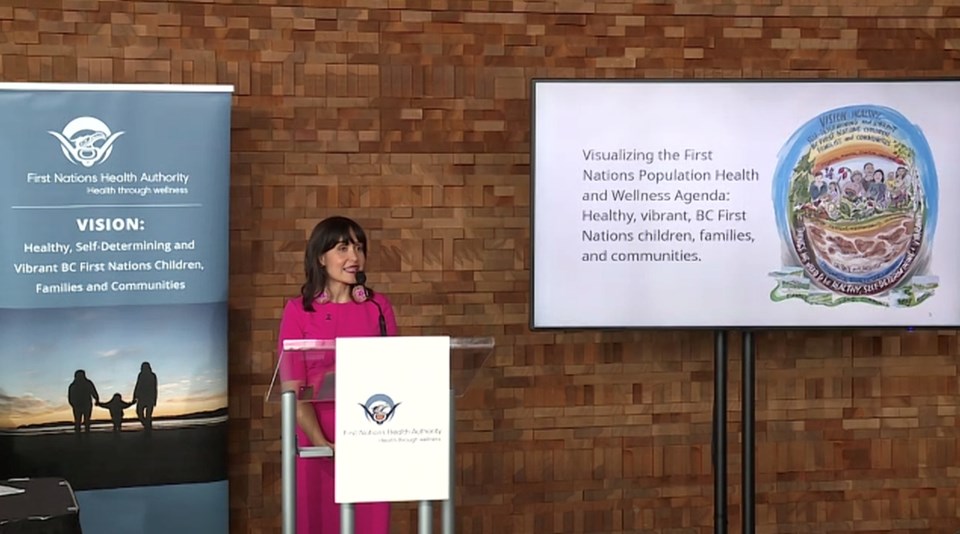The First Nations Health Authority (FNHA) and British Columbia’s Office of the Provincial Health Officer (OPHO) released a report Wednesday (Aug. 21) containing updated information about indicators of population health and wellness among First Nations Peoples in B.C.
Additionally, the contents of the report were presented to media at a press conference held at the Vancouver Convention Centre.
Speaking at the conference were Dr. Danièle Behn Smith, Deputy Provincial Health Officer for Indigenous Health; Dr. Bonnie Henry, Provincial Health Officer; and Dr. Nel Wieman, Chief Medical Officer with the First Nations Health Authority.
In a press release, Dr. Wieman said: “Although the report indicates some modest improvements to the health and wellness of First Nations Peoples in B.C., it underscores persistent gaps in B.C.’s health and supportive systems, which continue to fall short of their responsibilities to First Nations Peoples in B.C., their families, communities and Nations.
“Moving forward, we must uphold First Nations self-determination, advance Truth and Reconciliation between First Nations Peoples and other B.C. residents, and continue to develop our working partnerships and coordination between the provincial and federal governments and First Nations in B.C.”
The report, titled “First Nations Population Health and Wellness Agenda (PHWA): First Interim Update,” follows a 2021 report of the same name, and contains updates on 14 of 22 PHWA indicators of health and wellness being monitored from 2020 to 2030.
Primary updates in the new report reveal that while there has been improvement in the indicators of education and infant mortality, there has been no or minimal improvement in the indicators of avoidable hospitalizations, physicians identifying as First Nations, serious injuries, and youth or young-adult suicide.
The indicators of healthy birth weight, diabetes, life expectancy and all-cause mortality are all thought to have worsened.
“The findings in this report are not just data. They represent our loved ones — our children, parents, grandparents, siblings and cousins,” said Dr. Behn Smith. “[Overall] progress has been limited, and we must continue to work together to do more to achieve optimal health and wellness for First Nations Peoples… We hope this report can help to light the way forward as we work to transform our systems, so they are culturally safe and free from racism and discrimination.”
“Substantial gaps still remain between the health and wellness outcomes of First Nations Peoples in B.C. and those of other B.C. residents,” said Dr. Henry. “It is my hope that this report can draw attention to the work that is still needed to help curb the disproportionate impact on First Nations Peoples of emergencies including the toxic drug crisis and the COVID-19 pandemic that we see in indicators like worsening life expectancy and all-cause mortality.”
The complete report can be viewed at this link.



